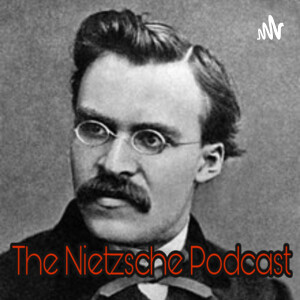
Nietzsche described Napoleon as "a type of atavism" - a throwback to an earlier age, and quipped that he, not unlike Rousseau, also sought after a “return to nature”. Nietzsche and Rousseau have mutually opposed perspectives on what nature is, however, and Nietzsche is quick to note that Napoleon was not simply a 'going back', but a 'going up'. To understand why Nietzsche thought the way he did about the figure of a Napoleon or a Caesar, we will recapitulate to the entire Nietzschean understanding of the cycles of history, consider aphorisms from across his career, and examine how Goethe's conversations with Eckermann influenced Nietzsche in this respect. I intend to argue that Nietzsche meant the Caesar figure, the 'non-theoretical genius', to be a replacement for the Messiah figure in Christianity. Rather than salvation in the spiritual, abstract sense, the redeemer of man is an individual who exercises power in the physical world. All of the ideas considered this season culminate in order to explain this aspect of Nietzsche's philosophy, commonly dismissed as 'great man worship'. What we find instead is a phenomenon that Nietzsche believes to be natural, objective, and unavoidable. While this is one of the most difficult ideas of Nietzsche's to tangle with, I think we're better off for comprehending his position in this respect.
Episode art: Battle of Wagram by Horace Vernet, 1836
view more
More Episodes
Nietzsche at the Movies: Barbenheimer
 2023-08-29
2023-08-29
 2023-08-29
2023-08-29
Q&A #7
 2023-08-01
2023-08-01
 2023-08-01
2023-08-01
Wandering Above A Sea of Fog #1
 2023-05-30
2023-05-30
 2023-05-30
2023-05-30
72: Philosophers of the Future
 2023-05-16
2023-05-16
 2023-05-16
2023-05-16
71: The History of European Nihilism
 2023-05-09
2023-05-09
 2023-05-09
2023-05-09
70: War!
 2023-05-02
2023-05-02
 2023-05-02
2023-05-02
012345678910111213141516171819
Create your
podcast in
minutes
- Full-featured podcast site
- Unlimited storage and bandwidth
- Comprehensive podcast stats
- Distribute to Apple Podcasts, Spotify, and more
- Make money with your podcast
It is Free
- Privacy Policy
- Cookie Policy
- Terms of Use
- Consent Preferences
- Copyright © 2015-2024 Podbean.com






